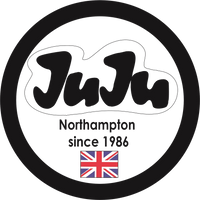Company Overview
JUJU are committed to upholding the highest moral, ethical and
legal standards in all aspects of our business and across our supply chain, and to making a true impact on the people, the environment and the communities where we work and live. As part of this commitment, Corporate Responsibility (CR) is central to how we conduct business.
Policies
We communicate our standards and requirements to our business
partners in our supply chain through the following:
Each of the above has been translated into the key languages of
our business partners so that they can clearly understand what is required to establish and maintain a relationship with JUJU.
Verification of Product
Supply Chain to Evaluate, Monitor and Address Risks of Human Trafficking
We evaluate, monitor and address the risks of slavery and human
trafficking in our industry and supply chain in several ways.
Monitoring/Addressing Risks
We continually monitor compliance with all of our CR requirements,
including the prohibition against forced or involuntary labour, and address any identified risks or violations. We conduct pre-sourcing assessments before a factory is allowed to produce JUJU product, conduct regular audits once production begins, work closely with factories to remediate any identified deficiencies and, when necessary, terminate supplier factories that fail to comply with our policies, procedures or guidelines.
Factory Audits:
Audits are typically conducted by reputable third party auditors or, to a lesser extent, by members of our CR team, every six to 24 months. Several factors, including the results of the previous audit, will dictate the actual frequency. Audits are usually scheduled in advance with the suppliers in order to foster a relationship of trust and cooperation but unannounced audits are conducted as necessary.
Audits are guided by the ETI Base code As part of the audit, we also seek workers’ views in confidence, so that we can hear, first hand, about factory conditions.
JUJU’s audit program encourages our business partners to assume
greater responsibility for their labour practices and general compliance by
providing the opportunity for suppliers to remediate any identified issues. We also reward those business partners that adopt and implement our standards and policies with continued business.
Remediation:
We believe that remediation best serves the interests of workers by enabling the supplier to develop safe, compliant and respectful workplaces. Therefore, if an audit reveals that a factory has failed to comply with our standards, policies or other requirements, we typically work with the factory to remediate the issues. We engage factory managers in an open discussion on the findings, exploring root causes, and support them in developing corrective action plans (“CAPs”). In addition, we meet with our suppliers between audits to review their progress in implementing remediation activities and to provide further guidance.
Termination:
We will generally terminate a relationship with a supplier or factory if (i) it fails to successfully remediate issues uncovered by an audit or (ii) we identify what we would consider an egregious violation of our policies or guidelines and remediation is not appropriate or feasible.
Certifications:
At the beginning or renewal of a
relationship, suppliers are required to acknowledge A Shared Commitment and agree to implement its requirements. JUJU also requires under its Branded Merchandise Policy that direct suppliers and licensees certify that materials
incorporated into JUJU products, whether acquired directly or indirectly, are from a source that does not use forced or involuntary labour and is not involved in human trafficking.
